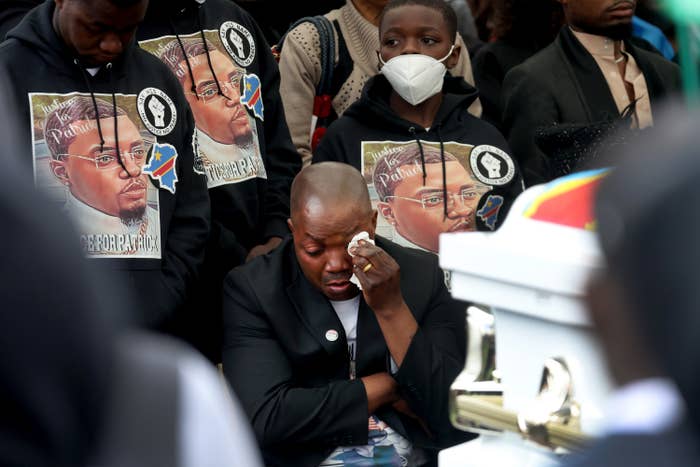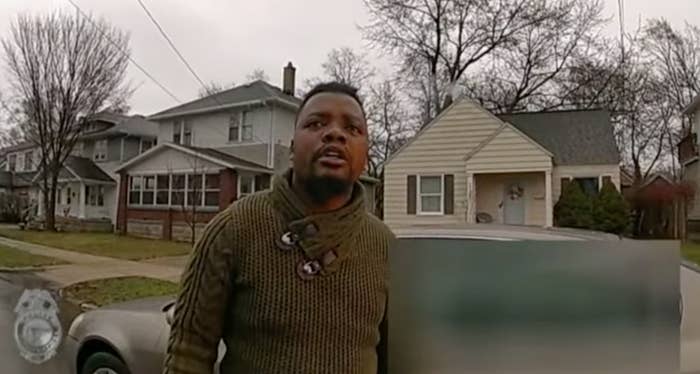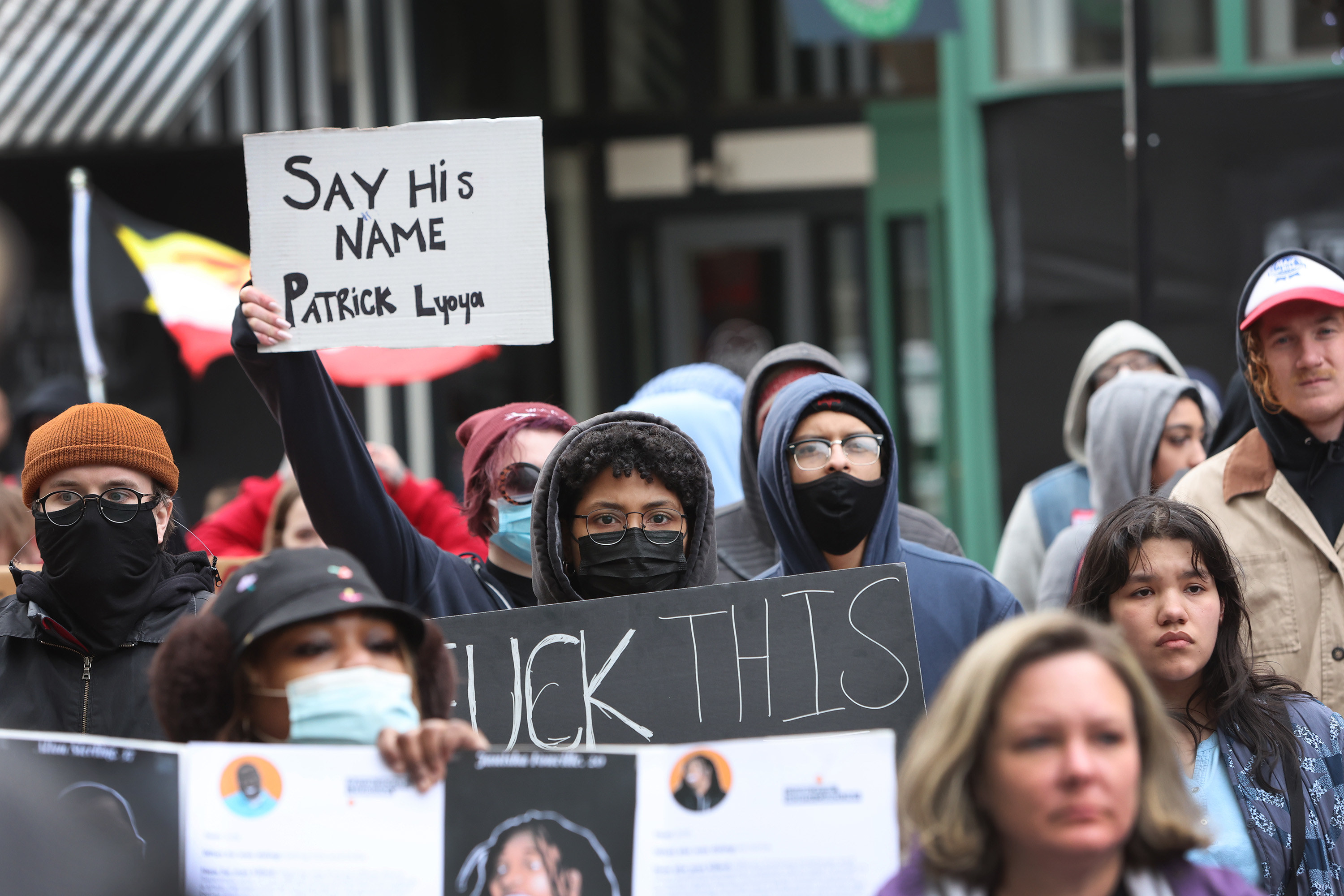
A Michigan police officer who fatally shot a Black man in the head while kneeling on his body after pulling him over for a traffic stop has been charged with second-degree murder, prosecutors announced Thursday.
Patrick Lyoya, 26, was killed by Grand Rapids police officer Christopher Schurr on the morning of April 4. Graphic video released by the police department days later showed Schurr struggling to detain a confused Lyoya after asking to see his driver's license. Police said Lyoya was pulled over due to "an improper Michigan registration" for the car he was driving.
"Taking a look at everything that I reviewed in this case I believe there is a sufficient basis to proceed on a single count of second-degree murder, and that charge has been filed with the courts as of today," Kent County Prosecutor Chris Becker told reporters during a news conference.
Schurr was placed on paid leave and stripped of his police powers pending the outcome of the investigation, which was conducted by the Michigan State Police. On Thursday, Grand Rapids police Chief Eric Winstrom said he is recommending that Schurr be immediately suspended without pay as the city moves forward with the process to terminate his employment as a result of the prosecutor's decision.
Becker said Schurr has turned himself in to state police and is expected to be arraigned on the charge on Friday.
"I hope it sends [the message] that we take these cases seriously," he said. "Everybody thinks the prosecutors are essentially an arm or just a branch of police, and we're not. We are our own entity [and] we have a duty to enforce the law be it on police or the public."

The April 4 encounter was captured on video from the officer's body-worn camera, his car's dash camera, a home surveillance camera, and a cellphone video. The footage shows Lyoya and Schurr talking face-to-face on a residential street moments before the deadly shooting.
In the footage, Lyoya looks confused about why Schurr had pulled him over. According to the videos, the encounter turned physical after Lyoya started walking in front of the car and the officer followed him, telling him to stop, and then grabbed the 26-year-old by his shoulder.
Lyoya then ran through the street and onto the sidewalk before the officer tackled him to the grass in front of a house as the struggle ensued. At one point, he is seen grabbing at Schurr's Taser, but it's unclear from the videos whether he ever had full control of the weapon.
As the struggle continued, Lyoya is captured in the cellphone video, which was recorded by the passenger of his car, lying on his stomach with the cop on top of him. Lyoya appeared to be trying to push up off the ground when the officer removed his gun from its holster and fired one round at the back of his head.
Autopsies conducted by the county medical examiner and an independent expert hired by Lyoya’s family concluded that he died from a gunshot to the back of his head.
When asked why it took over two months for a charging decision to be made, Becker said that he wanted to wait for the state police's full report, which he only received early last week.
Becker declined to provide more details about the evidence and how he came to his decision to charge the officer, citing procedural rules for prosecuting the case. But he noted that it was important for him to review a forensic report for the Taser before making a decision.
"It was a major piece," Becker said, referring to the Taser report. "That's about all I can say."
Lyoya, a father to two young children, immigrated to the US from the Democratic Republic of Congo in search of the American dream, according to his family and their attorneys. His family has likened his killing to an execution as they have called for Schurr to be fired and prosecuted.
Becker said he spoke with the family about his decision before announcing it publicly, noting that he also provided the family with a letter translated into their native language, Swahili.

Following the prosecutor's announcement, Patrick Lyoya's father, Peter Lyoya, told reporters through an interpreter that the family had "strongly believed there was no justice in America until maybe today."
"My heart was really broken during the past two months," Peter Lyoya said, according to his interpreter, Israel Siku. "Patrick is not coming back. We are not going to see him again."
He added that getting to this point where the officer responsible has been charged will bring his family some comfort as they continue to fight for justice for Patrick's killing.
"We are not done here," Peter Lyoya said, according to Siku.
